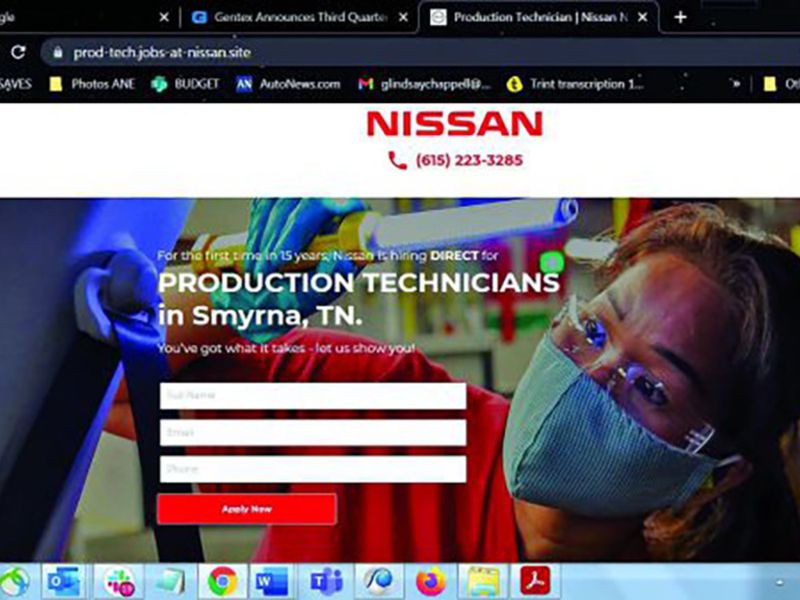
Editor’s note: This story is part of a special “Help Wanted” section running in the Oct. 4 edition that details the lengths auto companies are going to find new workers.
Nissan North America took to the airwaves last month in search of new employees, with ads on radio, TV and social media to promote career opportunities at its large assembly plant in Smyrna, Tenn.
Nissan, which reduced its manufacturing headcount as the pandemic disrupted the industry, now needs several hundred more plant employees, spokesman Brian Brockman said.
The ads don’t simply say that jobs are available; they tout the cushier perks of a technician’s job at Smyrna.
They tell the local community that employees have access to an on-site gym and golfing range, discounted rates on new-vehicle leases, paid college tuition and raises every six months.
“We see strong demand for production, and we have a need to expand production,” Brockman said. “Our traditional recruitment methods weren’t having the results we want.”
To make the ads resonate in a bigger way, instead of attempting the campaign in-house, the automaker used its national brand agency, Nissan United.
The new campaign represents a significant change in how Nissan has recruited for years: Its job website clearly emphasizes that new recruits will work directly for Nissan — not for its long-standing temp-worker agency, Yates Services.
“For the first time in 15 years, Nissan is hiring DIRECT,” the website proclaims.
The significance is that, like other vehicle manufactures in the U.S., Nissan has long relied on temp workers, employed by Yates, to staff its assembly lines.
But that job arrangement is undesirable to many young people. Temp workers earn lower wages than the regular Nissan workers standing next to them on the line. The temps don’t receive the same benefits, and they live under the constant fear that their position will be eliminated or turned on and off like a faucet — which is the point of having a temp work force.
But the tight labor market has prompted Nissan to try a new strategy.
“There’s a new competitiveness in the job market now,” Brockman said.

